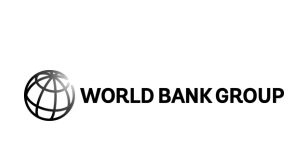Sri Lanka Gender-based Violence Health Sector Response: Estimating the Cost for Delivering Services – World Bank Project

Project Period: 5 months (May 5, 2024 – September 30, 2024
Gender-based violence (GBV) is a significant barrier to fostering inclusive and resilient societies, often perpetrated against women and girls. According to the World Health Organization (WHO), nearly one in three women globally experiences intimate partner violence (IPV) or sexual violence from a non-partner in their lifetime.
All levels of public hospitals and field health care services play a crucial role in providing safe and confidential mechanisms for GBV survivors to report, receive treatment, and be referred to appropriate services. However, due to budget constraints, service quality varies depending on facility setup, staff availability, and additional activities like outreach and youth engagement, which differ across centres.
Estimating the cost of delivering quality GBV services across health facilities in Sri Lanka, including Mithuru Piyasa centres, will provide a solid foundation for integrating GBV prevention and response into future health projects. It will also assist the Sri Lankan government in presenting a concrete proposal to donors to strengthen the health sector's GBV response.
For this reason, the World Bank, in partnership with FPA Sri Lanka, initiated this study to comprehensively assess and estimate the costs associated with delivering GBV services at selected health facilities in Sri Lanka. This project aims to identify financial gaps in delivering essential services and present recommended activities with cost estimates to strengthen GBV services within the health sector.
Objectives of the Study Project:
- Identify the package of post-GBV clinical services provided by public health units under the Ministry of Health, including examination, screening, counselling, medical treatment, post-exposure prophylaxis, emergency contraception, STI treatment, testing, referrals, and forensic exams.
- Assess gaps in service provision compared to global standards, such as WHO guidelines.
- Estimate the costs of delivering GBV services per health unit, considering staff costs, medical supplies, facility operations, and equipment.
- Review additional prevention activities conducted by Community Health Workers and youth groups.
- Develop practical recommendations and cost estimates to address service gaps and enhance GBV prevention and response interventions, in collaboration with relevant stakeholders.
This comprehensive approach seeks to offer insights and recommendations for strengthening GBV prevention and response services in Sri Lanka's health sector. As health facilities are often the initial contact for GBV survivors, it is crucial to assess current service delivery systems and identify areas for improvement.
.png)


